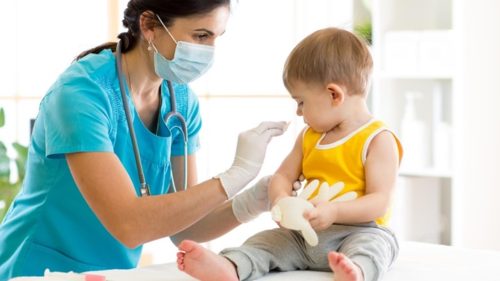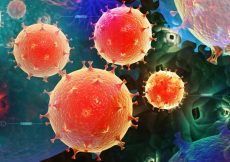June 15th, 2022
The Food and Drug Administration is expected to approve Pfizer’s and Moderna’s COVID-19 vaccines for children under 5 later today. Once the recommendation from the FDA’s Vaccines and Related Biological Products Advisory Committee is final and the Centers for Disease Control and Prevention has the chance to review it at their meeting on Friday, the long wait will be over for the more than 18 million American youngsters who haven’t yet been eligible to receive protection from the safe and highly effective vaccines. Rob Stein describes the “maddening wait for parents of babies, toddlers and other young kids.”
They’re the last group to get a chance to get vaccinated. And that’s because the studies for these littlest kids started later than adults and older kids, and it turned out to be a lot trickier than expected to find just the right dose for these littlest ones. But it looks like Moderna and Pfizer and BioNTech finally did it. The FDA has released the agency’s assessments of both vaccines and concludes that both look like they safely stimulate enough immunity to protect kids as young as 6 months old.
Pfizer’s vaccine will be available for children between 6 months and 4 years of age as a three-dose series of 3 microgram injections — much lower than the two-dose series of 30 micrograms for teens and adults 12 and older and the 10 microgram dose given to kids between 5 and 11. Clinical trials demonstrated safety and 80% efficacy in preventing COVID symptoms in kids under 5.
Moderna has requested authorization for its two-dose series for kids under 6 years of age, which Berkeley Lovelace Jr. says is slightly less effective in preventing symptoms than Pfizer’s three-dose version:
Moderna’s two-dose vaccine, given at 25 micrograms, was shown in trials to be around 40 to 50 percent effective at preventing milder infections, according to the FDA documents, though the company has said it is testing a booster dose for the age group
The vaccine should protect little children against the worst outcomes of Covid. And overall, the data on the safety profile of the vaccines has so far been “very encouraging,” Ameenuddin said.
The vaccines were generally tolerated well, with pain at the injection site, irritability and sleepiness among the most common side effects reported, according to the FDA documents.
Moderna also expects its two-dose COVID vaccine to pass the FDA’s scrutiny and be approved for use in kids ages 6 to 17. (Pfizer is the only vaccine approved for kids under 18.)
Even though kids tend to have milder COVID-19 symptoms when they get infected compared to adults, there are many reasons why every child who is eligible should get vaccinated. Here’s the short list:
1. The recent Omicron surge saw huge numbers of children, including previously healthy children without underlying health conditions, coming down with the highly contagious respiratory virus, filling up clinics, emergency departments, and hospitals.
2. Some kids still get plenty sick and develop complications from the virus. More than 1,250 children under the age of 18 have died so far as a result of getting infected with SARS-CoV-2, according to the latest CDC data.
3. Some children suffer with breathing problems, fatigue, brain fog, heart problems (myocarditis), and mental health concerns which can persist for months after the initial infection.
4. Ongoing surveillance has detected a link between SARS-CoV-2 infection and new-onset type 1 diabetes, a lifelong and serious chronic disease.
5. Thousands of cases and dozens of deaths have been attributed to multi-system inflammatory syndrome of childhood (MIS-C). The Pfizer vaccine has been shown to reduce the risk of MIS-C.
6. As the virus continues to evolve into new variants of concerns, experts predict new waves of infections in the future. Completing the vaccine series should give parents a level of certainty that their precious children will be protected from the worst of whatever variant of this virus has to offer.
7. Children interact with everybody in our families and communities — other children and adults who are at greater risk of severe illness, complications and death because of their underlying heart disease, kidney disease, obesity, diabetes, hypertension, immune suppression, mental illness, or other chronic condition. Vaccinating children protects them and protects everyone else in the process. It helps to keep them in day care and in school, and participating in play dates, sporting events and extracurricular activities with family and friends.
Cases are down and more people are vaccinated and boosted, but we aren’t out of the woods just yet. Keep an eye on your pediatrician’s website and social media pages over the next few weeks so we can help ensure that all kids get protected against this dangerous (and evolving) pandemic virus.




































